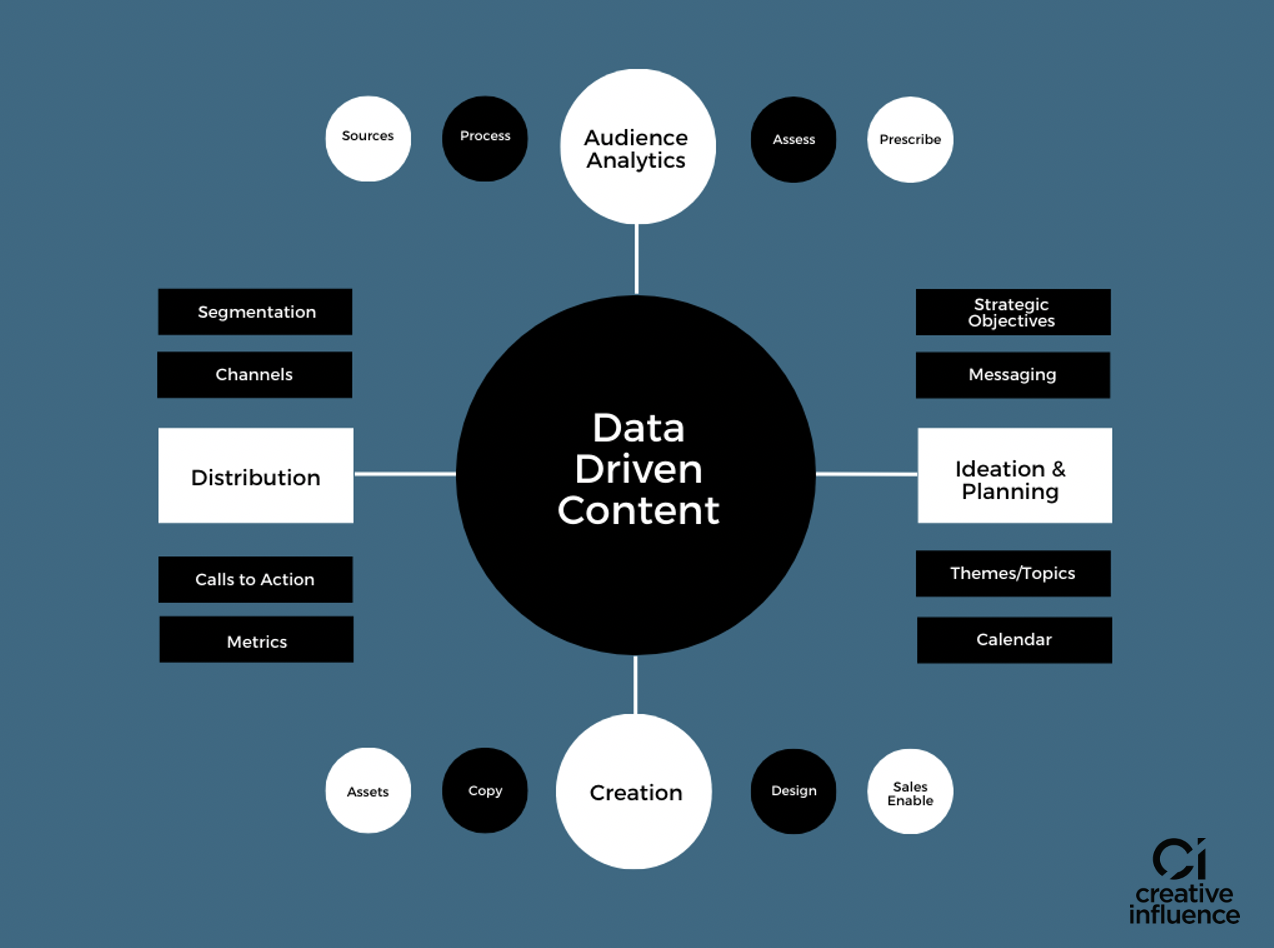Atlanta is a city known for big promoters (it’s a town synonymous with “Boosterism”) and big marketing (think Coca-Cola) so it makes some sense that the town has become a MarTech hub. Our two-part series about this in AtlantaInno (the Atlanta Business Chronicle’s innovation section) describes what’s behind the rise of ATL’s MarTech unicorns from SalesLoft to Terminus to MailChimp and more. Part 1 of the series is here and Part 2 is here.
Innovating the Conference Marketing Experience
If we’re burning out on screen time, what’s that mean for bigger business meetings like industry conferences and events? Many marketers are ambivalent at best about the nearly complete shift from in-person to virtual encounters. As we move towards a post-pandemic marketing world, what lessons about conference marketing learned from the COVID-era marketing will remain? Our article in AtlantaInno addressed the issue. Read it here. The topic was covered again recently in the NYTimes article, “The Race to Fix Virtual Meetings.” Check them both out and let us know your thoughts.
Who's Innovating Right Now, Who Isn't and Why?
Niccolo Machiavelli wrote, “Never waste the opportunity offered by a good crisis,” but not all crisis-driven innovation is of the self-serving Machiavellian type. Current necessity has driven near-term innovation in, for instance, the making of health care supplies like masks and ventilators. The question is, beyond greedy opportunism and saintly altruism, how are companies handling innovation during the COVID-19 crisis?
Bridging the Corporate | Venture Divide
Interactions between large corporations and innovative ventures are often compared to elephants dancing with mice. Someone ends up getting squashed and it isn’t the elephant. Yet, innovators believe that the credibility and revenue boost that their offerings receive from adoption by big brands is worth the risk. Atlanta has seen the recent rise of new intermediaries – startup engagement platforms – whose mission is to smooth the process, act as relationship accelerators and increase the likelihood that innovative solutions from smaller ventures win long-term adoption by Atlanta’s largest organizations.
Pursuing the Promise of Data-Driven Content
We gathered a group of content and marketing leaders to discuss how they’re pursuing the promise of data-driven content and asked our friend - analytics expert Read Ziegler of REVELOCITY - to share his perspectives, too. Here’s the top line summary
A comprehensive approach to data-driven content considers: 1) how audience analytics can inform better content decisions from type to topic to tone and 2) how – properly scrubbed, formatted and turned into a story - internal data can be leveraged as compelling content for an external audience.
The ideal situation is pulling a 360-audience view together from the range of marketing data sources (CRM, marketing automation tools, web, social, etc) to inform real-time, prescriptive decisions. Getting to that situation, however, can be slow, expensive and uncertain.
The other side of the coin is – too often – marketers who merely grab the most convenient data available – though potentially incomplete - to make content decisions.
Add to that the continuous drive for more content and the result is an overabundance of “listicle” quality content.
The process of using data analytics to feed the content creation process needs to be sped up and simplified…must be nimble enough to work with the realities of today’s fast-paced business environment.
Data-driven content is a balance of science AND art…we need better “science” but still need to consider “gut” input.
Data storytelling demands that “art” – more than dumping numbers in an infographic, it requires marketers to apply to data the elements of story in very concise form. Who or what is the hero? What is the conflict? What’s the non-obvious solution (that at least implies the need for our product or service)?
Do The Right Thing: Marketing During a Crisis
When a broad public crisis strikes – economic, environmental or health-related – the way to market innovation or anything else is with increased ethics, empathy, education and efficiency.
Social Innovation Marketers End With Why?
Why? Because Simon Sinek — who wrote the bestseller, “Start with Why,” — told us to start with that word, that’s why. “Why,” is the inspirational purpose — beyond money or profit — for an organization’s existence. The “Start with Why,” refrain has become so commonplace that “purpose” has secured a spot as the fifth “p” of marketing alongside product, place, promotion and price. However, especially when it comes to marketing mission-driven, socially impactful products, the purpose should be the last of the five marketing mix factors rather than the first. Social innovation marketers should not start with “why.” They should end with it.
Designing Innovative Products That Sell Themselves
What if you could design your innovative product or service so that it sells itself? Find out how several smart product designers are doing just that. Read it here.
When Influencers And Innovation Marketers Meet
Influencers aren’t just for hocking teen products anymore - B2B marketers and more are getting the word-of-mouth flywheel spinning with the help of experts who have amassed a sizable following. Read it here.
How To Anticipate Customer Needs
Skate to where the puck is gonna be…which is…where, exactly? Innovation marketers tell us how they foresee the unexpected and uncover the non-obvious in this article. Read it here.
How Innovation Marketers Keep Their Edge
You’ve not only got to be an innovative marketer, you’ve got to market innovation which is a tougher job than many marketers have to tackle. How do you stay sharp? Some of the sharpest shared their secrets with us in this article. Read it here.
Marketing Innovation To Entrepreneurs
Entrepreneurs of small & midsize businesses - a very broad market category - are often tough to get to adopt what’s new and next because of tight budgets and high risk aversion. We interviewed some smart marketers and entrepreneurs about how they have successfully broken through in this article. Read it here.
Weed-based Innovation Marketing
No, this isn’t a post recommending that you use weed to inspire your marketing. Rather, its a story about how innovation marketers are promoting hemp and CBD in an otherwise conservative marketplace. Lessons from the days when glamour make-up giants like Elizabeth Arden ruled apply here. Read the story here.
Creative Influence Launches "Marketing Next" Column
Another angle on content marketing is how it is being used to spark adoption of innovative products and services. Through our work with Creative Influence clients, we’re frequently helping them use innovation as a thought leadership theme and we’re also charge with using marketing innovations to tell their stories. Because we’re deep in the thick of innovation every day, we’ve just launched a new column in Atlanta Business Chronicle’s Atlanta Innovation (AtlantaInno) section. It’s called Marketing Next.
Marketing Next is an article series focused on what makes some companies succeed and others fail when trying to gain audience/buyer adoption and scale when marketing innovative products and services. Geoffrey Moore wrote the book Crossing the Chasm about the marketing of innovation over 30 years ago. Not much has been published about the topic since then. We’re taking up the challenge in Marketing Next.
Innovation goes beyond the technology industry. So, Marketing Next articles examine the marketing of innovation in other industries and situations in addition to that which occurs in the tech sector.
Our first article, for instance, focuses on the marketing of CBD/Hemp in that burgeoning industry. Check it out and share your thoughts. We welcome story ideas, too. Thanks, Andrew and Natalie
Winning with Content Intelligence
In this episode of Creative Influence's Content Conversations, Andrew Dietz and Natalie Springfield of Creative Influence talk with John Wolf - founder of Inspector6.com - and Will Allred - co-founder and COO of Sorter.com - about their ventures which supplement human creativity with AI to ensure we create the best content for the best audiences.
From left to right: Andrew Dietz, CreativeInfluence.io | John Wolf, Inspector6 | Will Allred, Sorter.com
Content Innovation Trends
What elements of content are ripe for innovation in 2019 and who is doing a great job of it? What’s next? This episode focuses on near-to-mid-term innovations, stories and specifics about creation techniques, technology platforms, distribution trends and business model shifts that are moving the content needle. Creative Influence's team interviews Elizabeth Strickler of Creative Media Industries Institute at Georgia State University, Micah Spruill of MS2 Consulting and Matt Crenshaw of USATestPrep.
How to Create Account-Based Content
Personalized content simply performs better but what’s the B2B version of that? Account-based content, that’s what. Listen here while Creative Influence’s Andrew Dietz and Bill Smith - Director of Leadership Communications with The Coca-Cola Company - discuss account-based content with Torrey Dye of Terminus - the leading provider of account-based marketing solutions.
B2B Content and the Entertainment Industry
Launching Content Conversations
In Fall 2018, Creative Influence held its first Content Conversations roundtable in Atlanta. The discussion was rich and the audience so engaged that - after this one - we decided to record the audio and podcast them. Meanwhile, here are written notes from the first discussion.
Content Talent
Great content arises from great talent. How do you attract, train and manage the best content talent for your organization? There has long been a perception among Atlanta businesses that great content-creating talent is difficult to find in Atlanta. How is the hypergrowth film industry in Georgia impacting content talent that is available to support business needs? How might businesses and the entertainment industry cooperate to attract the best content talent to Georgia and to keep it here?
Georgia Entertainment Industry Needs
The economic impact of the film industry on Georgia’s economy has grown by 40x from $242 million per year to $10 billion/year and rising. Georgia now hosts 100 sound stages.
Georgia film industry’s hyper-growth as a center for film production belies the fact that it is still working to guarantee crew “depth” and, in particular, it still is not viewed as a vibrant center for creative talent originating big-dollar intellectual property.
Georgia Film Academy (GFA) is pioneering ways to fill the talent gaps by training creatives locally, incenting them to stay in Georgia, enticing L.A. writers’ rooms to set up in Georgia and encouraging talent representation to put resources here.
GFA is also working with the State to develop film funds to support the projects of Georgia-based creators.
GSU’s Creative Media Industries Institute launched in October 2017 to build connections between creative students and the entertainment and information industries. Its focus is on advanced technology workforce training, building a national model for media entrepreneurship and collaborating with media and arts industry partners.
GFA is working with The Georgia Board of Regents at the University System of Georgia to introduce Nexus programs such as that being launched by Columbus State University in conjunction with the Columbus Film Office and the Georgia Film Academy. This first ever nexus degree in film production will begin at Columbus State University in the spring of 2019 offering a 60-hour degree that will prepare students for Georgia’s rapidly growing film industry.
Earlier in the talent pipeline, at the high school level, The Georgia Department of Education, Georgia Film Academy, the Technical College System of Georgia, the University System of Georgia and the Fayette County Public Schools collaborated to create the class, which is geared toward students interested in working in the film industry. Presumably this will roll out across the state.
Of the $772 billion entertainment industry, 82% is generated by the television sector. About 600 TV writers drive most of the world’s content. If Georgia is to grow its creative talent pool, it needs to grow its share of this market.
Show Runners are the executive producers who have overall creative authority and management responsibility for television programs. Attracting more Show Runners to Georgia is at the top of the GFA’s list of core challenges.
Georgia Businesses’ Marketing/Content Needs
To attract and keep more creative content talent in Georgia, GFA would be wise to expand its partnership reach to include Georgia’s business community – which needs content creation talent and has the willingness and ability to pay for it.
In a 2018 survey by the Content Marketing Institute (CMI) of marketers, the average percentage of total marketing budget spent on content marketing by B2B companies is 26%. 38% of all B2B respondents expect their content marketing budget to increase in the next 12 months. Last year, B2C companies reported their organizations spent, on average, 38% of their total marketing budget on content marketing. 37% of B2C marketers said they expect their organization’s content marketing budget to increase in the next 12 months. There’s no reason to believe these national numbers are different for Georgia businesses.
Demand for the best content creation talent is high everywhere but the supply of great local talent remains constrained. It is highly likely that Georgia businesses are open to training entertainment-industry-oriented students in marketing/content internships which may provide a complementary career path.
In the technology arena, one approach for matching programmer talent with larger businesses is to run a hackathon – a sprint-like design event to develop software solutions to difficult problems. One idea (suggested by Elizabeth Strickler) is for business to run “write-a-thons” or similar creative content sprints in order to better connect with and encourage local content talent.
One potential obstacle to the use of entertainment industry talent in businesses’ content creation and marketing efforts may e the requirement that such talent have the executive presence, maturity and interpersonal skills to successfully work with corporate leaders.
Another content-related need of Georgia marketers is to use data to answer the questions, “Did that content matter?” and “How do we quantify storytelling creativity and its results?” They need to identify talent that understands content analytics and metrics-based information design and strategy – and there doesn’t seem to be much of it to be found.


















